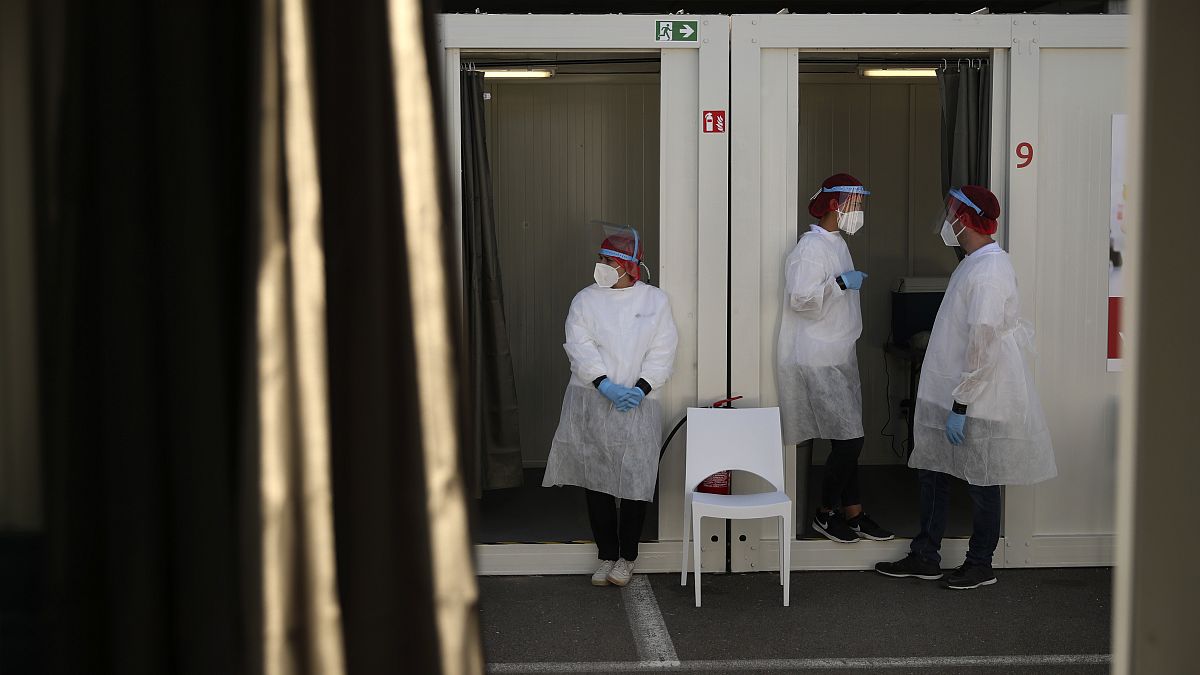How EU countries compare on readiness for the next health crisis

The new report compared countries’ vaccination rates, compliance with international health standards, and more.
European countries’ readiness to handle a health crisis has barely budged since the COVID-19 pandemic, according to a new report from the European Commission and Organisation for Economic Co-operation and Development (OECD).
The pandemic caught the European Union unprepared and upended healthcare systems in Europe and around the world. It also made it clear that domestic health risks, such as infectious disease outbreaks, can quickly become global.
The new report assessed EU countries on a range of health measures, including crisis preparedness, which analysed their compliance with international health standards, vaccination rates among older people, public trust in government, and readiness to tackle antimicrobial resistance (AMR).
It shows that while most EU countries are well-positioned to respond to another health threat, major challenges that were identified during the pandemic remain.
In 2023, for example, 78 per cent of EU countries said they met the World Health Organization’s (WHO) international health regulations, which are designed to prevent the spread of infectious diseases around the world.
That share has hardly moved since 2020, when 75 per cent met the standards.
Scandinavian countries were most in line with these standards, followed by France, Lithuania, and Germany. Meanwhile, while Romania, Greece, and Slovakia were the least compliant, Poland, the Czech Republic, and Malta saw the biggest improvements between 2020 and 2023.
EU countries are generally doing well when it comes to disease surveillance, laboratory capacity, and human resources, the report found, but there are still gaps in public messaging and preparedness for radiation or chemical emergencies that are either accidents or acts of terrorism.
AMR preparedness
AMR, which occurs when bacteria or pathogens evolve to the point where antibiotic drugs become ineffective, is exacerbated by the overuse of antibiotics and poor infection control in hospitals.
It’s a key public health threat facing Europe and the world, with about 800,000 antibiotic-resistant infections and 35,000 deaths in the EU every year.
European countries generally score well when it comes to AMR preparedness, the report found, but there is room for improvement on diagnostic testing and AMR monitoring.
There are also disparities in both antibiotic use and resistance. Across the EU in 2022 to 2023, scientists found that 32 per cent of tested bacteria samples were resistant to major antibiotics. That rate surpassed 50 per cent in Romania, Greece, Cyprus, and Bulgaria.
Meanwhile, in 2022, there were 17 antibiotic doses taken for every 1,000 EU residents, up 20 per cent from the first two years of the COVID-19 pandemic but an overall decline over the past decade, the report found.
Vaccinations and trust
Immunisations against infectious diseases are considered a key preventative measure, particularly for vulnerable older people. During the COVID-19 pandemic, for example, EU countries with higher levels of vaccine coverage tended to have lower rates of excess deaths.
While most older adults had gotten a COVID-19 vaccine by late 2021, uptake of booster jabs ranges across the EU, the analysis found. Influenza vaccinations have also declined since their pandemic era uptick.
The report authors said the key challenges are access to the vaccines and public concerns around their safety, underscoring the role of trust in managing a health crisis.
A lack of trust can prompt people to ignore public health guidelines, give rise to social and political friction, and lead to worse health outcomes, the report said. It can also be a cyclical challenge, with countries that perform poorly during a health crisis going on to lose their residents’ trust going forward.
Across 19 EU countries surveyed, 52 per cent of people said they were confident their government was ready to handle a major emergency, while 31 per cent said they would not be capable.
People in Finland, the Netherlands, and Denmark were the most confident, while those in Latvia, Portugal, and Greece were the least confident.
link







